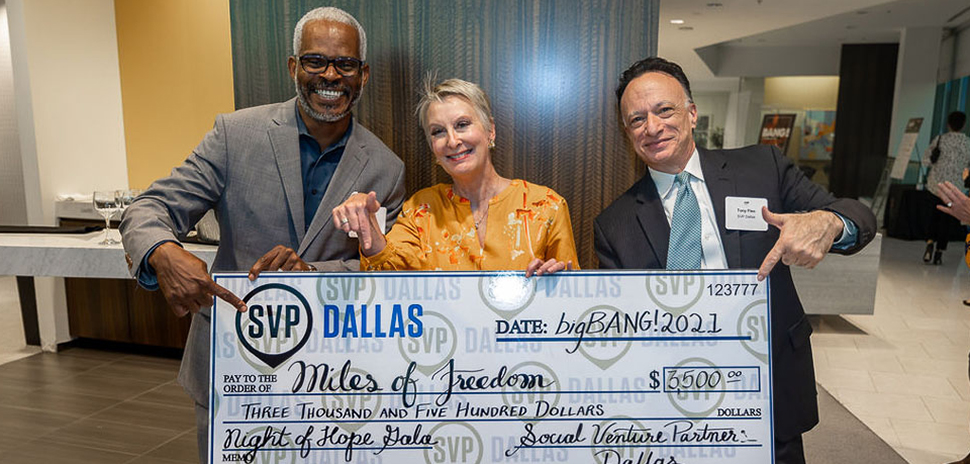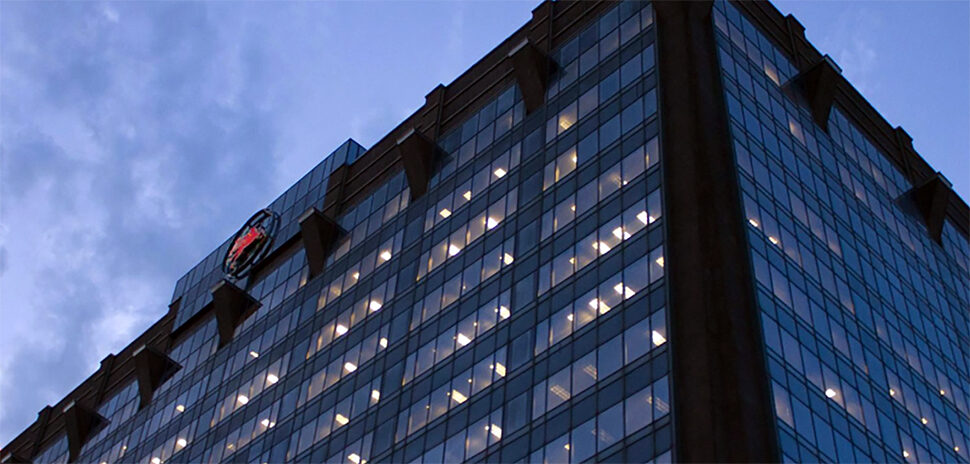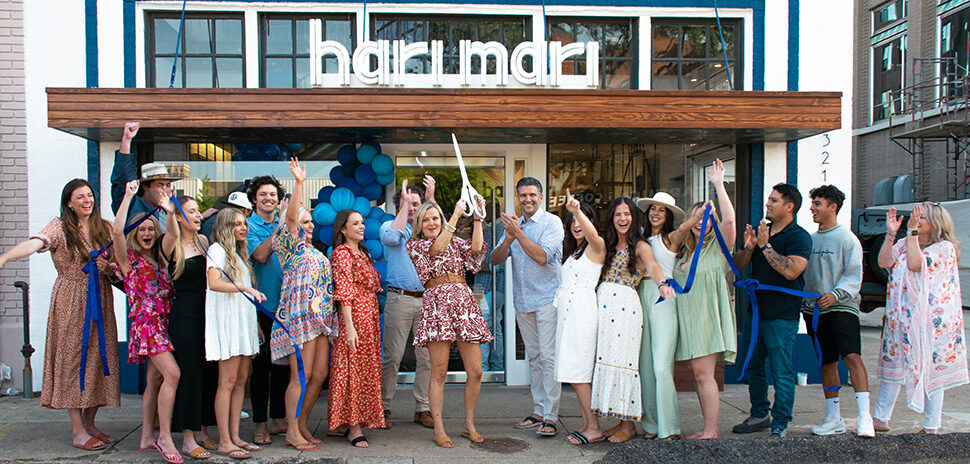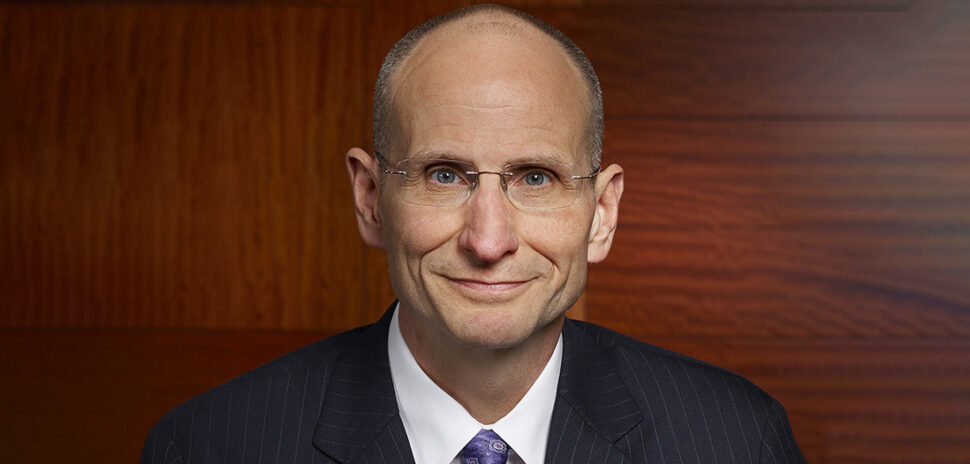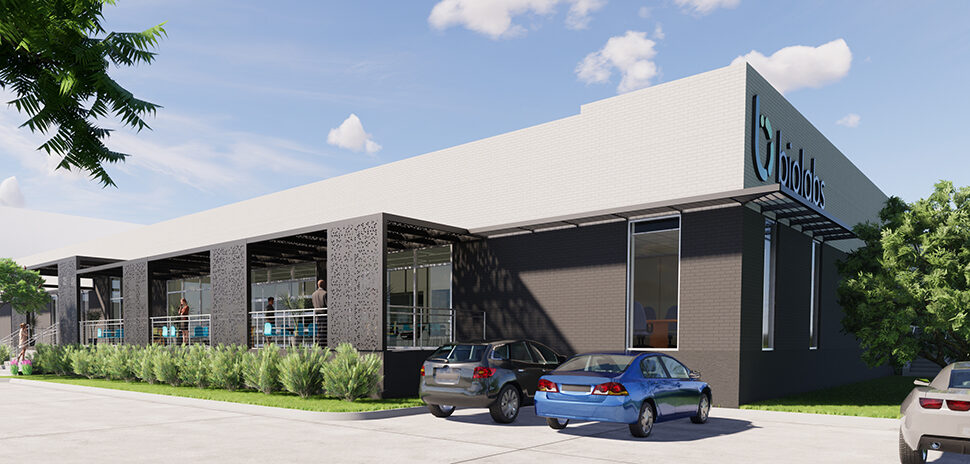“Doing Good Better” has been the mission of Social Ventures Partners Dallas for over 20 years. Each October, its bigBANG! event brings the impact community together to drive deeper conversations and innovative solutions for positive change in the Dallas community.
This year’s bigBang! was held across five days in late October—and reverberations from it have echoed across North Texas ever since. Like the cosmic cataclysm it’s named after, when you step back and see the big picture, endless possibilities were revealed: from investigating how to elevate justice and inclusion; to exploring ESG-oriented investing frameworks and CSR strategies; to steering us toward a pathway for healing our divides.
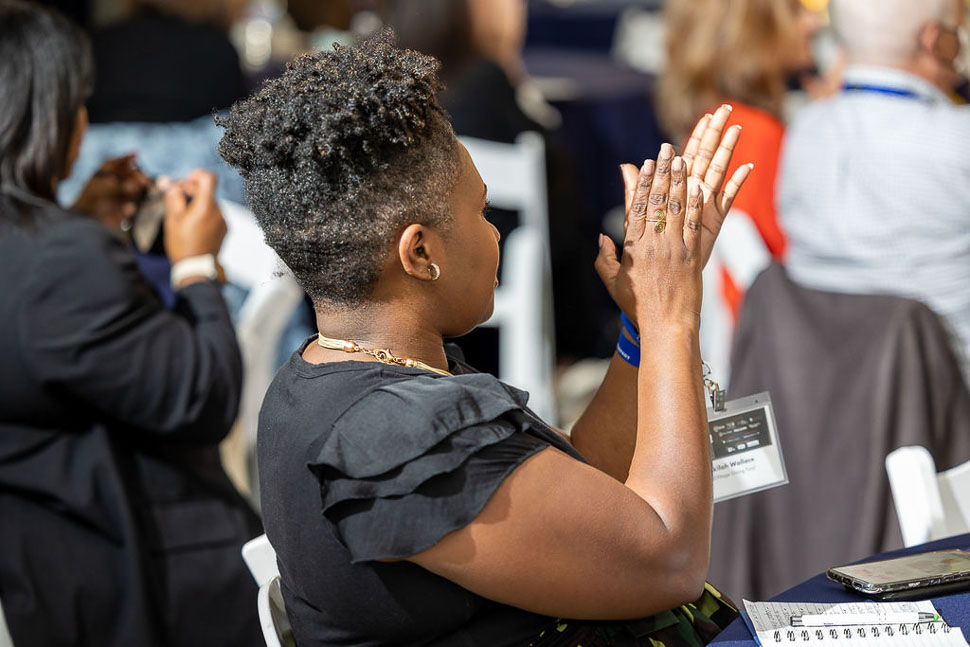
[Photo: SVP Dallas]
Here’s a look back at Dallas’ longest-running event for social innovation—and the energy it’s carrying forward to drive positive change for all.
The New Economy: Healing Our Divides
The 2021 bigBANG! conference explored the “New Economy” and how integrating social, economic, and environmental considerations across business, philanthropy, and government will steer us toward a path that will heal our divides. The five days featured powerful speakers, gripping breakout sessions, and inspiring organizations working to drive solutions for equitable outcomes in Dallas and beyond.
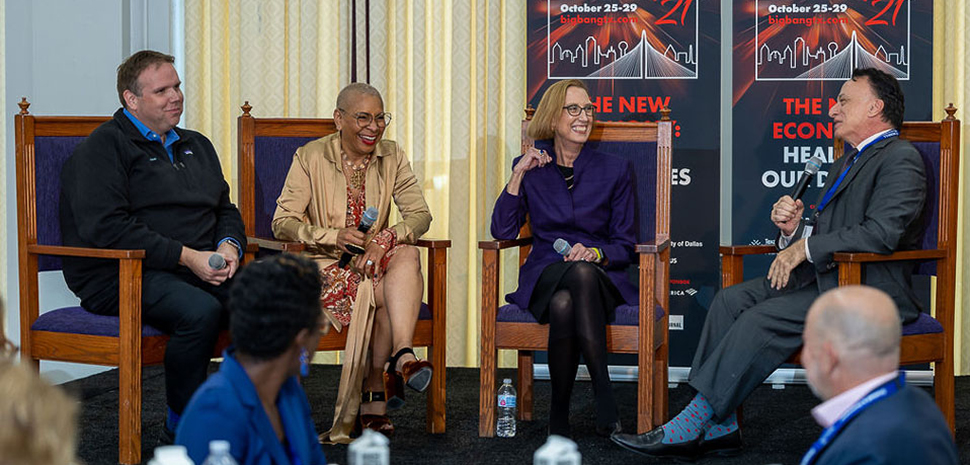
[Photo: SVP Dallas]
Alongside SVP Dallas, other co-producers of bigBANG! included United Way of Metropolitan Dallas, the Texas Women’s Foundation, the Federal Reserve Bank of Dallas, the City of Dallas, Paul Quinn College, and Pegasus Park.
The first three days of the event were virtual, bringing together leaders to explore social innovations that could provide access and opportunities to underserved North Texas communities. The last two days brought people together in person at Paul Quinn College and Pegagus Park to share collective ideas for community betterment.
The Kickoff
Alfreda Norman, senior vice president at the Federal Reserve Bank of Dallas, kicked off the bigBANG! 2021 conference. Joined by Tony Fleo, CEO of Social Venture Partners Dallas, and Susan Hoff, chief strategy & impact officer at United Way of Metropolitan Dallas, she talked with them about why these conversations, which can be sensitive at times, are so critical.
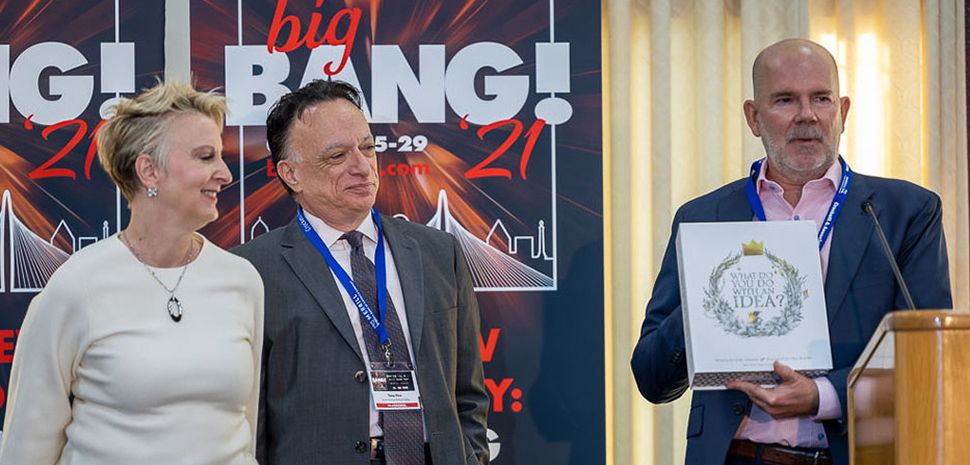
[Photo: SVP Dallas]
“The title is the New Economy,” said Tony Fleo. “We’re going to hear from folks who understand that the old ways aren’t working for the vast majority of people. We have to do things that are different and innovative—actions that are intentional and deliberately inclusive.”
Fleo said United Way has always been a leader in hosting hard conversations, even before they were deemed “culturally appropriate.” He asked Susan Hoff why United Way has always been so willing to have those conversations.
“First, because it’s the right thing to do,” Hoff replied. “Morally, ethically, but also to drive our community forward. We will not move forward with prosperity, as a community, as a city, or as a nation until we are all a part of the economy.”
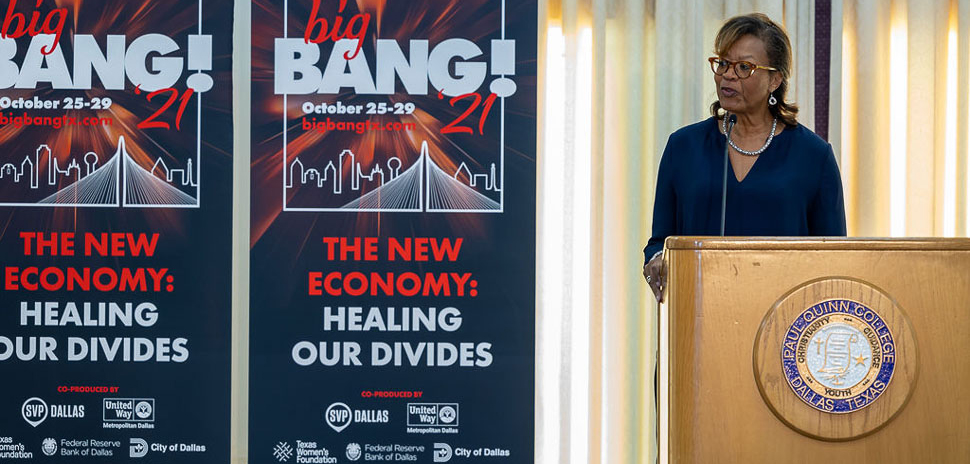
[Photo: SVP Dallas]
“It’s a positive and uplifting thing to think about how we can break down barriers, so that people can have all the opportunity to step into all the potential that there is,” Alfreda Norman said. “Everyone has to work at this: it’s not just one entity or one section. They’re all working together.”
Other conversations from day one featured topics including the digital divide, innovations in equity & healing, building inclusive workforce systems, and talent retention in low-status America.
Stop the Backslide: The Economic Leadership Council
Nearly 3 million women have left the workforce in the last year. One in four women are thinking about leaving the labor market. The mass exodus of women in the workforce poses a threat to gender parity progress in corporate America.
On day two, the Texas Women’s Foundation hosted the Economic Leadership Council Panel, which discussed the pandemic’s impact on gender inequality in the workplace. Panelists included Bonnie Clinton, VP and chief procurement officer at Toyota North America; Deborah Dennis, chief customer officer and SVP of HR & corporate affairs at Oncor; Hilda Galvan, partner in charge at Jones Day; and Martina McIsaac, region head and CEO at Hilti North America.
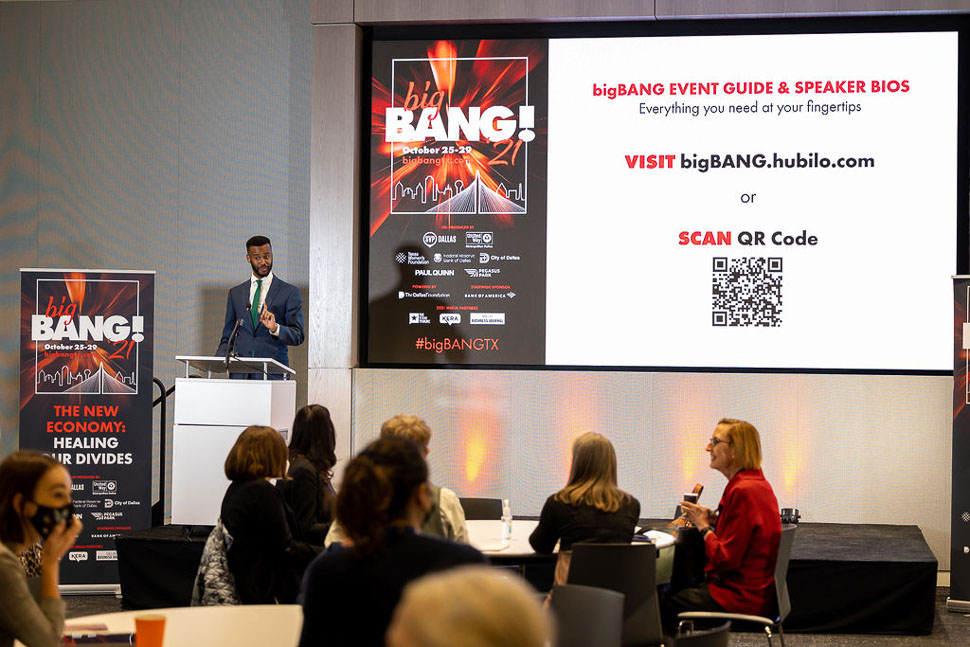
[Photo: SVP Dallas]
They first explored what a hybrid work model can do for mothers who work.
“Part of what happened in the pandemic is mothers learned that although it might have been a challenge to be home with the kids, they liked that flexibility,” Dennis said. “So if we don’t remain flexible, we’ll start seeing people looking for places where they can get that flexibility.”
McIsaac added that policy should also be flexible and it’s important to model the flexible behavior, otherwise the policy has no teeth. “There’s so much to be gained from the thinking phase, but also from the doing phase,” she said.
“Modeling says so much more than words on a paper—that is really the permission,” Clinton agreed.
“I would add that modeling is important but communication is important, too” said Galvan. “Sometimes you may implement a policy and then you recognize that this isn’t working. Be okay saying this is not working. Be okay with saying ‘let’s talk about this and figure out a different way.’ You have to be flexible and willing to acknowledge that you didn’t get it right. Just talk about it.”
The panelists switched gears to remind their virtual audience about something: Inclusion isn’t a one-way street. We need male allies too.
“We’re bringing men and women into the conversation and talking about it openly,” Clinton said. “We have to create more visibility across the board.”
Losing women in the workforce is a serious economic problem, the panel agreed.
“As a CEO, I would say there is no benefit or flexible policy that you could put in place that is going to cost more than losing women in the workplace,” said McIsaac. “The value of retention and the value of diverse inclusive teams in your workplace are worth so much more.”
Clinton capped things off with a powerful note about the work that needs to be accomplished:
“Stop the backslide, keep women in the workforce, create an environment where they will thrive and succeed. This is good for our companies and it’s good for our communities. It’s important that we all start this at home because we have to start the pipeline at the very beginning of the process—and that is at home. Encourage women and girls so that they believe they can do anything.”
Day two also featured conversations about the role of philanthropy in the new economy, along with innovations to address homelessness and housing, and impacts of fines and fees in communities of color.
Waste, Water, & Food
Day three featured more revealing conversations surrounding social, environmental, and racial justice initiatives.
Matt Tranchin, SVP of impact for EarthX, sat down with Catherine Coleman Flowers, environmental health advocate and author of “Waste: One Woman’s Fight Against America’s Dirty Little Secret,” which spotlights the lack of proper waste sanitation in rural America.
“One would assume that in the United States of America—the wealthiest country in the world—everyone would have access to clean water and sanitation,” Flowers said, “However, it became apparent during the Flint, Michigan, crisis that this is not true.” She added that Flint is only one of many communities around the country lacking access to clean water.
Marginalized communities often bear the brunt of the water and sanitation crisis, Flowers said.
“It’s very important that we allow people in these communities to tell their story so we can get to the real solutions,” she said. “I’ve learned that this problem looks different in every community. Whenever solutions [for a rural place] are proposed from an urban perspective, they leave out the important local factors necessary to address the problem.”
Tranchin asked Flowers how the role of innovation shapes her work. Growing up in rural America, Flowers’ family made do with what they had, and everything they had they reused, she said. Aluminum foil was used over and over again. Every jar was given a new life. Tins and pie pans were used multiples times. The innovation is turning “common sense factors into the solutions.”
Flowers offered an anecdote about a farmer to convey the importance of bringing common sense to decision-making. The farmer, who never went to college, learned how to fabricate his own parts to keep his 30- and 40-year old farm equipment running.
“Those are the kinds of people that need to be sitting down at the table with aerospace engineers trying to figure out how we treat wastewater in a way that we’ve never done before,” Flowers said. “Until we flip that engineering paradigm, we’re going to continue engineering solutions that keep failing.”
Facts & Figures
On day four, bigBANG! transformed to an in-person event at Paul Quinn College. This year, SVP Dallas had a fun little surprise for three people waiting in their gift bags—a small egg that could be given to any nonprofit to award them $1,000.
The day began with Paul Quinn College President Michael Sorrell ushering two students on stage to share their stories. “For those of us working in these types of jobs, this is what gives us hope: their dreams, their ambitions, their ability to step out from their comfort zones and strive for something greater than what they’ve picked for themselves,” Sorrell said.
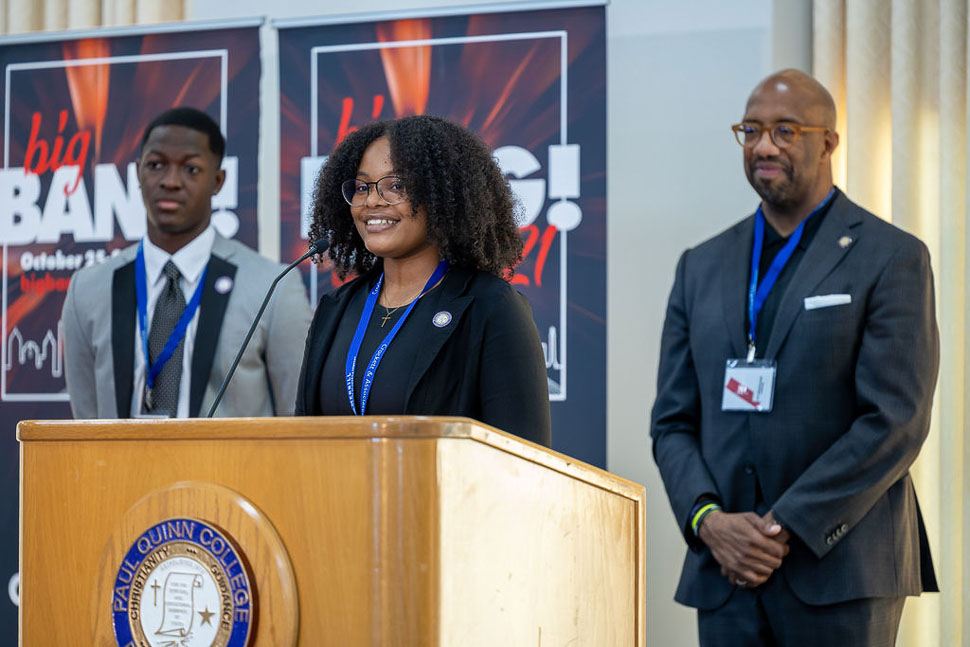
[Photo: SVP Dallas]
Solidarity economics
Dr. Manuel Pastor, professor of sociology and American studies & ethnicity at the University of Southern California, opened the day’s sessions with facts and figures on equity, growth, and community in a changing America.
“We have entered a moment of change and reckoning with our past, our present, and our future,” said Pastor.
He discussed the demographic changes, the great resignation, the growing social distance between generations that America is facing—and the many other social divisions we face as a nation.
Pastor reminded the audience that mutuality drives our economy, not individualism. “We’ve been trying to think about a new narrative that we call solidarity economics,” Pastor said. It’s not about talking about “the economy”—it’s about talking about “our economy.”
Get off your assets
The next session focused on how philanthropy, corporations, and donor-advised fund providers can take a proactive and principled stand on the big issues we currently face.
Panelists include Noelle Leveaux, CMO at Communities Foundation of Texas; Janiece Evans-Page, CEO at Tides; Nicole Anderson, president of the AT&T Foundation and AVP of corporate social responsibility; and Susan Hoff, chief strategy & impact officer for United Way of Metropolitan Dallas.
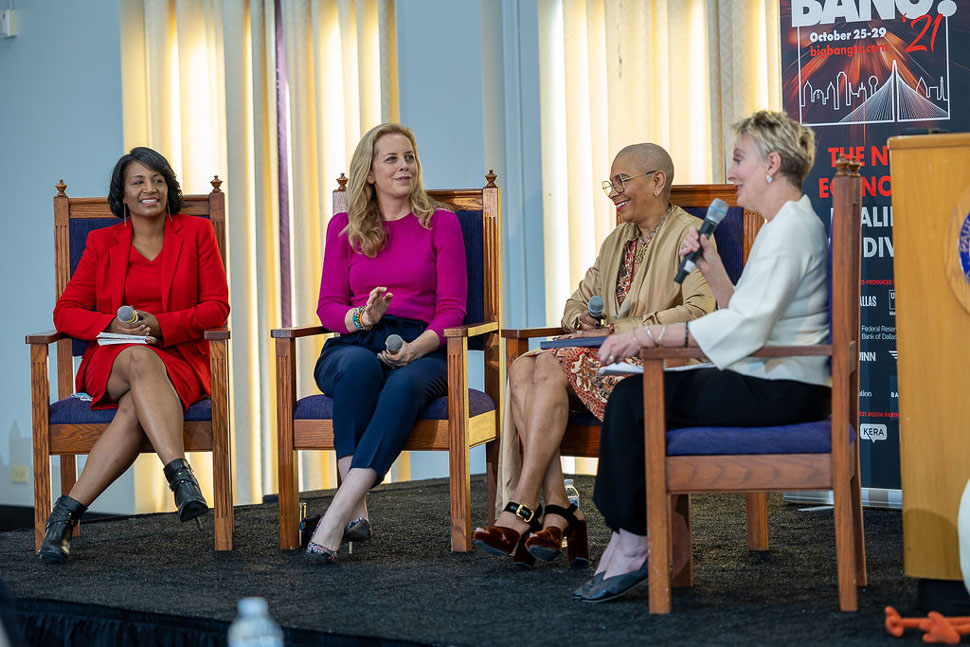
[Photo: SVP Dallas]
Hoff kicked off the program by asking the other panelists to think about bigBANG! 2021’s title, “The New Economy: Healing our Divides,” and to explore how the philanthropic sector can begin to heal these divides and bridge the gap.
Evans-Page said the shift toward equity-centered work is important, as well as using the current momentum to move a little faster.
“Intentionality is extremely important,” LeVeaux added. “But I also think that we have to start from the inside.” LeVeaux noted that the phrase “equity lens” sounds like something you take on and off—when an equity lens should be inherent at all times for these processes.
Anderson brought up the digital divide and the importance of making sure that funds are being evenly distributed across communities to solve high-speed internet connectivity issues.
“I think the call to action for philanthropists is how do we collectively move from just transactions to transformation,” Evans-Page said.
The pandemic has increased the pressure for solving these big challenges, but there will always be those who see clarity in crisis. “I think in crisis you shed things that aren’t important,” said LeVeaux. “You shed things that you’ve been wasting your time and resources on.”
Bringing Equity to the Dallas Park System
The City of Dallas Park and Recreation system has gone through a dramatic transformation over the last 10 years—from opening signature parks like Klyde Warren to new trails like the Honey Springs-Cedar Crest Trail in Oak Cliff. However, there is still work to be done to bring park equity to those who don’t have access to a park within walking distance.
This panel included Katie Robbins, president & CEO of the Hoblitzelle Foundation; April Allen, president of the Southern Gateway Public Green Foundation; Jesse Moreno, Dallas District 2 Council member; and Robert Kent, Texas state director for The Trust for Public Land.
“When we invest in parks, we have a life cycle of impact and that starts from construction,” Kent said. “What this shows is a lifetime investment that will have reverberations across generations that are so important for building equity in the city of Dallas.”
Allen is leading the effort to develop a new deck park over I-35 which will be adjacent to the Dallas Zoo. Allen believes that parks “re-stitch democracy” and that “parks can be a space where we can address some of these societal divisions, because we are forced to interact with people who we may not traditionally interact with.”
Councilman Moreno added that investing into parks has a tremendous impact on the economy. For every dollar that the city of Dallas invests into parks, $7 flows back into the economy.
Robbins ended the panel with some key advice: “Think larger than recreation. There are so many more benefits of a public green space.”
Jim Schutze’s ‘The Accommodation’
Banned books tend to shine a light on areas of society that some would rather keep in the dark. And shining a light is exactly what Jim Schutze did when he explored racial unrest in Dallas, inspiring him to write “The Accommodation: The Politics of Race in an American City.”
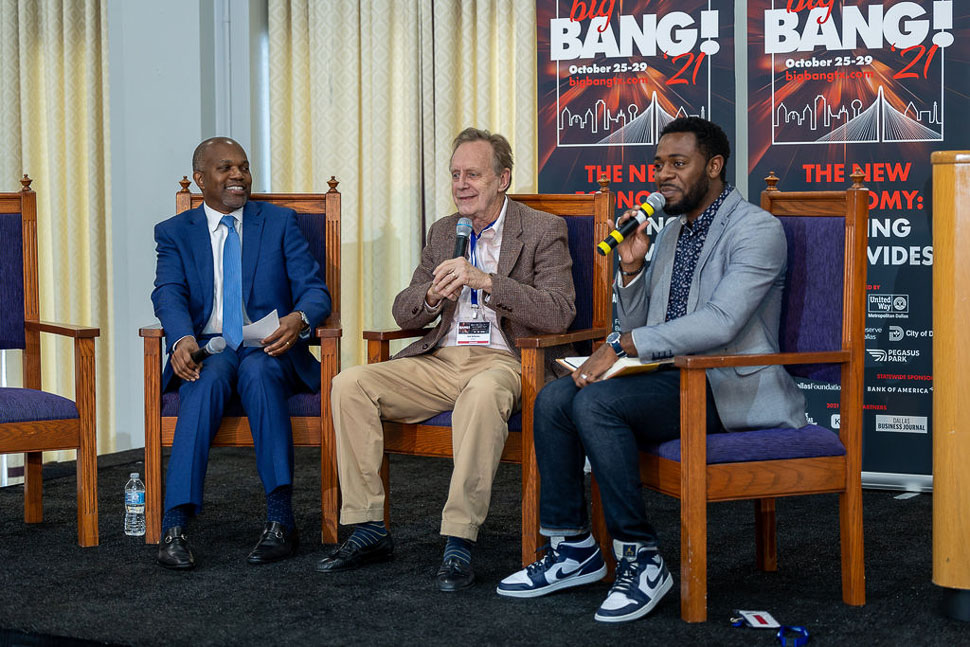
[Photo: SVP Dallas]
The book was originally published in 1987, but it was dropped at the last minute by the publisher—likely because the book took a critical view of Dallas’ race relations.
Three decades later the book got a second chance thanks to Robert Appel, an impact investor and civic leader, and Will Evans, founder and executive director of Deep Vellum. The two met at bigBANG! some years ago, and had a common interest in republishing “The Accommodation.”
Founded in 2013, Deep Vellum is a nonprofit publishing house and literary arts center dedicated to driving deeper conversations through literature by publishing the world’s vital stories. When Evans founded Deep Vellum, he set out with the goal of one day publishing “The Accommodation”—which he saw as Dallas’ vital story, unlocking a truth that many have not been told.
“The Accommodation” has been called the most dangerous book in Dallas, but Byron Sanders, president and CEO of Big Thought, thinks “the only reason why ‘The Accommodation’ would be a dangerous book is if we don’t want things to change.”
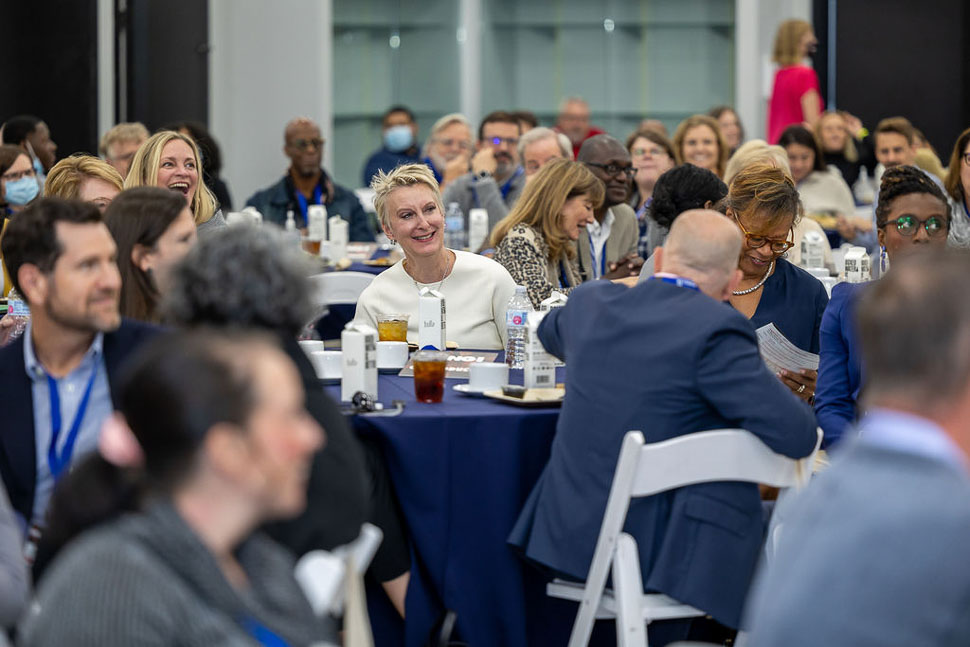
[Photo: SVP Dallas]
Impact Investing
Day five of bigBANG! focused on impact investing and aligning your resources with your values. Fittingly, the finale event was hosted at Pegasus Park, the mixed-use social innovation campus that unveiled its Water Cooler space for the social impact sector last month.
Investing in the ‘regenerative economy’
The event was kicked off by Donovan Ervin, climate finance officer at the Hive Fund for Climate and Gender Justice, with a look at how to shift perspectives and move capital toward supporting the new economy. Ervin shared a few insights about how to best accelerate investment in the “regenerative economy.”
The regenerative economy is rooted in community needs, Ervin explained. To uplift it, he mentioned five key actions philanthropy can take to accelerate impact investing:
- Develop human capacity in climate justice finance.
- Facilitate direct investments in these products and companies.
- Support the intermediaries, the loan funds, and the CDFIs that are making those investments.
- Build the movement for the regenerative economy by funding research, narrative, columns, and advocacy.
- Support campaigns that aim to divest from harmful extractive industries.
“As impact investors, we have the opportunity to create a new paradigm to build a new market that conforms to our values,” Ervin said. “That means letting go of the dehumanizing financial returns expectations and making room for other important aspects of life: like time, joy, generosity, and rest. It means reimagining returns, and returning wealth and power to the communities and workers from which it was taken.”
Dallas Mavericks Impact Investing
Cynt Marshall, CEO of the Dallas Mavericks, and SVP Dallas CEO Tony Fleo took the stage to talk about how our local NBA team moves the impact investing needle forward. One way is initiatives like Mavs Take Action—which was created after some courageous conversations in the community about the systems that underpin disparities and inequities.
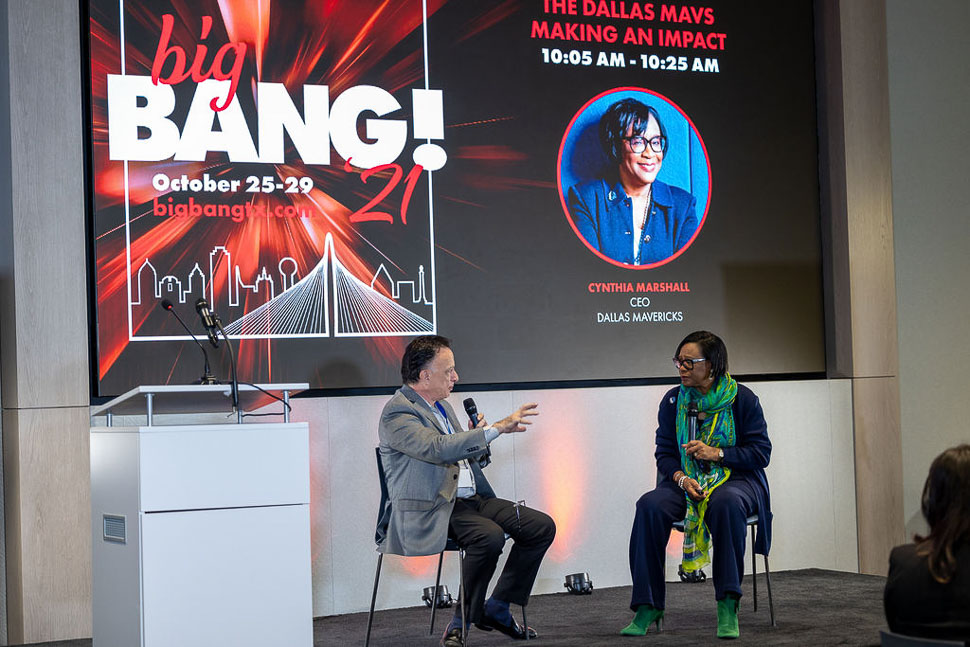
[Photo: SVP Dallas]
Marshall talked about the importance of being a partner for education and the Mavericks’ adoption of a local school. “We’re not the experts in education,” Marshall said. “We play basketball. But we can come alongside others and help.”
Marshall thinks change begins when you listen, learn, and unite.
“We have to listen to people, we have to really understand what is on their minds,” she said. “You learn about the issues because we aren’t all on the same side of an issue. So you learn about it and find that one common place to unite around to make a difference.”
Investing for Impact: bigBANG! Fast Pitch Competition
Each year, the bigBANG! event culminates with a fast pitch competition—one that gives startup founders a chance to pitch their “for-profit” social impact company in front of a panel of judges.
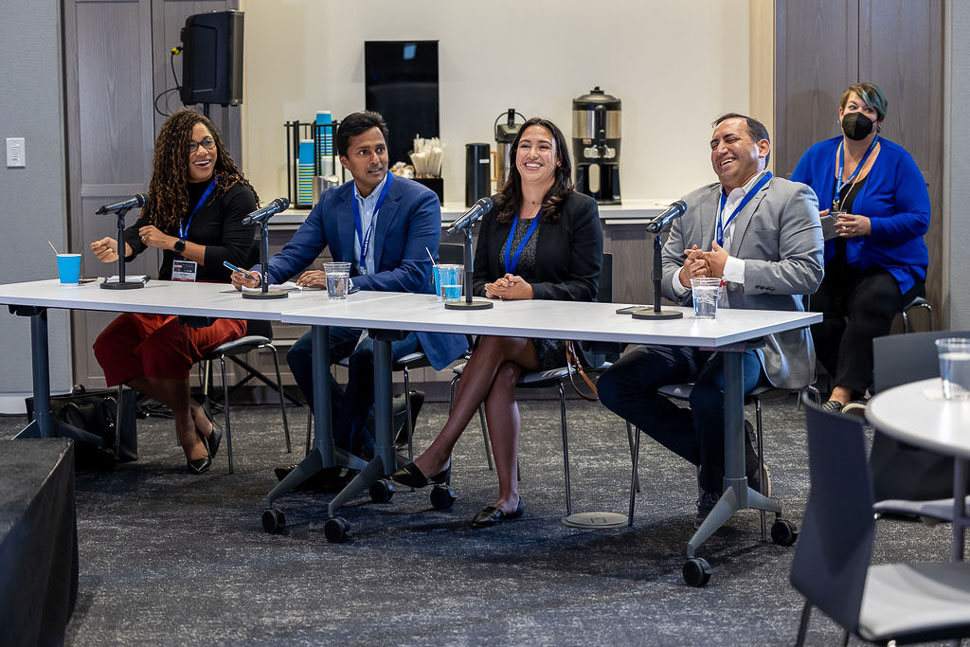
[Photo: SVP Dallas]
The judges this year were Vikaram Agrawal, director of EarthX; Ben Leal, president of the Addy Foundation; Brianna Losova-Evora, senior associate at The Pew Charitable Trusts; and Star Carter, COO of Kanarys, who won the pitch competition in 2019.
$25,000 was up for grabs this year and two startups competed for the prize.
Julian Mensah pitched for On the Road Garage, an Irving-based company that was launched in 2020. On the Road Garage is a tech-focused collision repair business that works to fill a skills gap and talent pipeline shortage. The company rebuilds cars through a paid internship program that provides training in collision repair, advanced driver assistance systems, and other smart car technology.
CEO and Chief Wellness Officer Romy Antoine pitched for his co-founded company, One Stop Wellness. The San Antonio-based company makes wellness fun through customized on-demand classes, innovative technology, and actionable analytics. Companies can utilize this tech to empower employees to improve their lifestyles, productivity, and overall well-being. It also serves as a tool that users can show their doctors to facilitate communication about their current state of health.
And the winner was…Romy Antoine! He took home the prize after his winning pitch on his company’s social impact and its potential to change health engagement in the workplace.
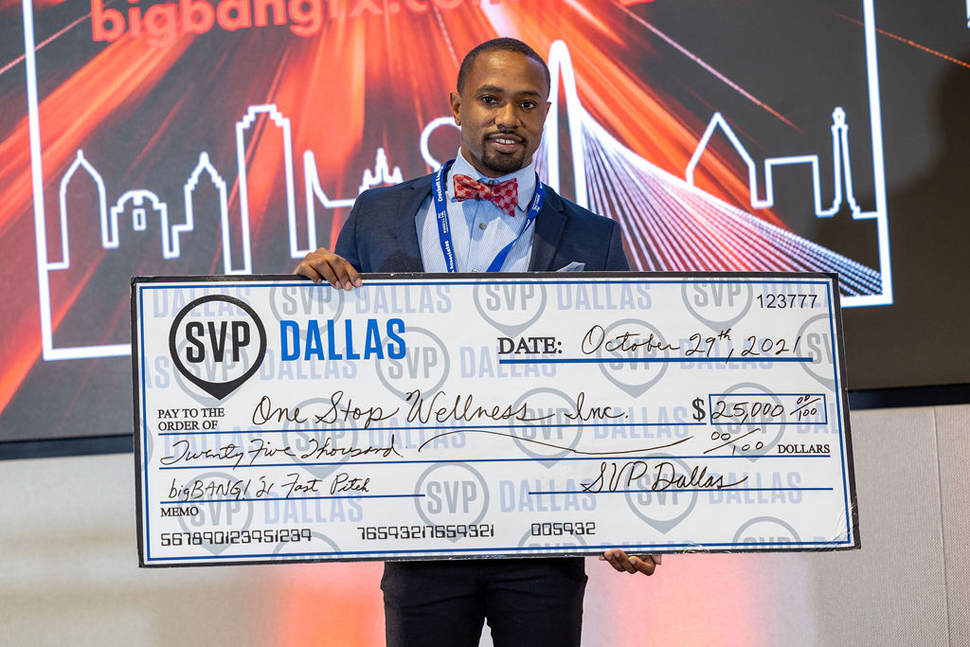
[Photo: SVP Dallas]
A word with the winner: One Stop Wellness
Dallas Innovates talked with Romy Antoine after he won the competition. It turned out he’d had a difficult time getting to the conference. His flights were delayed, then canceled. He thought about calling in and pitching through Zoom—but like many successful entrepreneurs, he found his way.
Antoine took a risk and bought a very expensive one-way flight, leaving at 5 a.m. “As an entrepreneur, it’s good to have a plan, but you need to bet on yourself and take risks or you’ll never know what the outcome may be,” he said.
His risk paid off to the tune of $25,000.
After spending the weekend carving pumpkins with his family, Antoine reflected on winning the bigBANG! pitch competition and told us more about his startup.
“Our mission is to empower people with access to their healthcare data so that they can actually make the right choices to improve their lives and their family,” Antoine said.
One Stop Wellness is currently in a pre-seed round to raise $600,000, with $155,000 still needed to close it, Antoine said. He said he feels good about winning the SVP capital: “It’s just more validation for my team that all our hard work is really paying off.”
Antoine said the funding round will mostly go toward increasing One Stop Wellness’s video library, by adding health literacy content in areas like fitness, nutrition, and mindfulness. The remainder of the round will go toward sales and marketing to increase brand awareness.
The startup plans to start working on major partnerships soon. They’re currently partnering with employee benefits brokers to gain access to corporate clients. Expanding to insurance carriers would be the next level up for the company, Antoine explained. “It would give us access to more people,” he said. “Being able to start building a new database of population health data would really help improve a lot of the disparities around health information and access to it.”
One Stop Wellness looks forward to producing new wellness programs for its users. The videos are a “masterclass” experience and clock in under 12 minutes, to make sure that empowering your health doesn’t have to be a “time suck,” Antoine said.
About SVP Dallas
Social Venture Partners Dallas builds powerful relationships to tackle our community’s social challenges. Their mission is to improve lives and maximize social impact by cultivating philanthropists, strengthening nonprofits, investing in innovative solutions, and applying collective resources and expertise to combat these challenges.
SVP Dallas is one of the original six founding chapters of Social Venture Partner International—a global network of local partners working to connect passion and purpose. SVP Partners invest money, time, and skills in nonprofits that serve their local community. As a facilitator of social innovation, SVP Dallas hosts five social innovation luncheons each year as well as the bigBANG! conference.
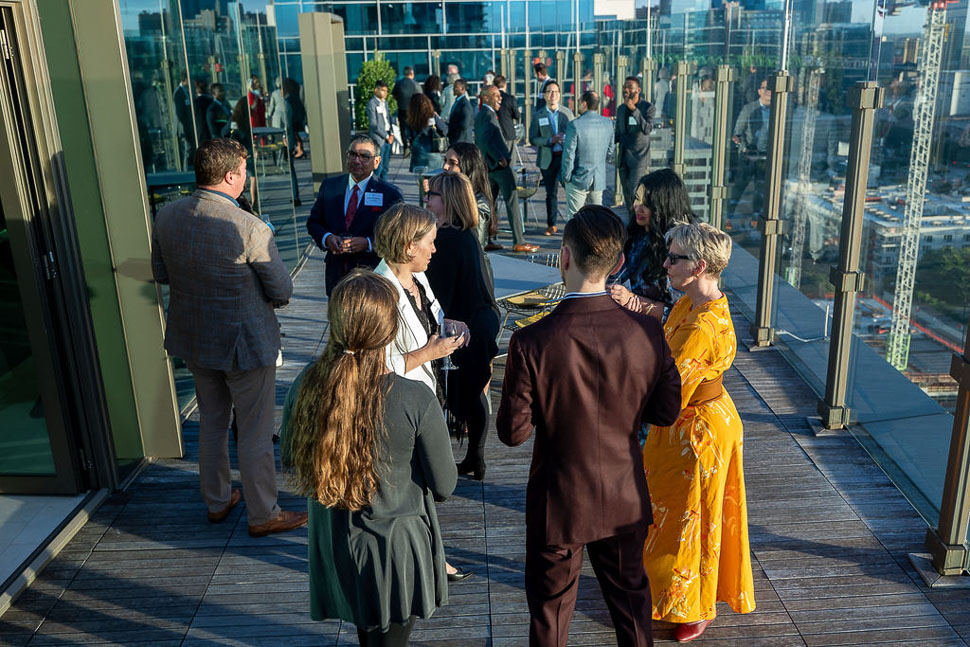
[Photo: SVP Dallas]
![]()
Get on the list.
Dallas Innovates, every day.
Sign up to keep your eye on what’s new and next in Dallas-Fort Worth, every day.










